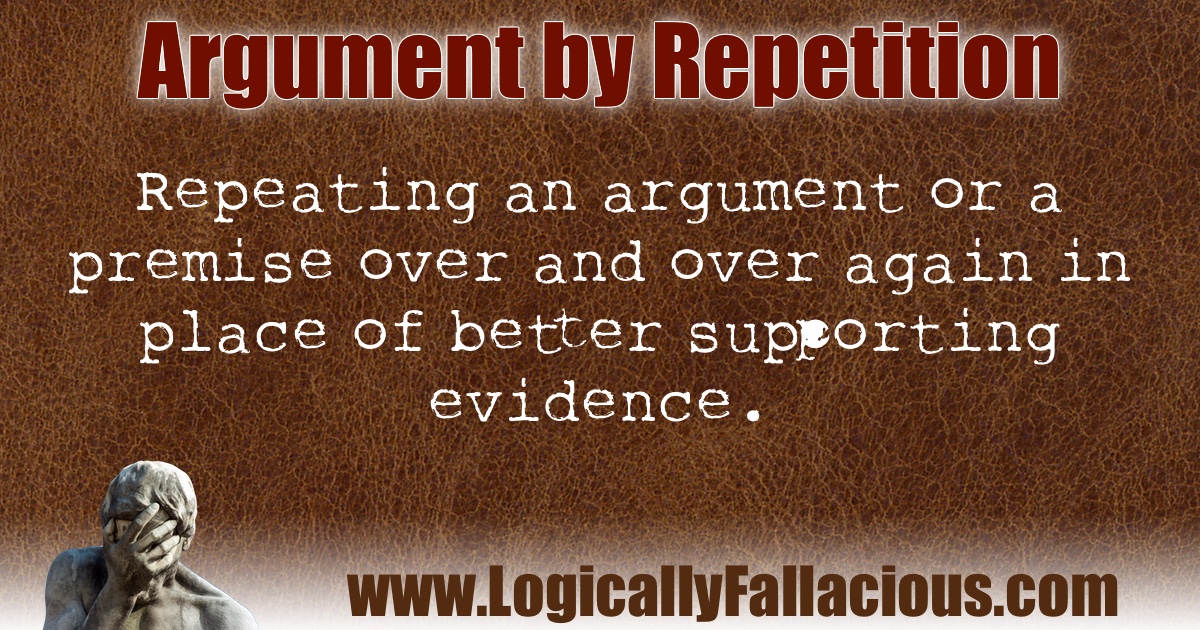argumentum ad nauseam
(also known as: argument from nagging, proof by assertion)
Description: Repeating an argument or a premise over and over again in place of better supporting evidence.
Logical Form:
X is true. X is true. X is true. X is true. X is true. X is true... etc.
Example #1:
That movie, “Kill, Blood, Gore” deserves the Oscar for best picture. There are other good movies, but not like that one. Others may deserve an honorable mention, but not the Oscar, because “Kill, Blood, Gore” deserves the Oscar.
Explanation: There are no reasons given for why, Kill, Blood, Gore deserves the Oscar, not even any opinion shared. All we have is a repeated claim stated slightly differently each time.
Example #2:
Saul: At one time, all humans spoke the same language. Then because of the Tower of Babel, God got angry and created all the different languages we have today -- or at least some form of them.
Kevin: I studied linguistics in college, and I can pretty much guarantee you that’s not what happened. Besides the short story in the Bible, what other evidence do you have to support this theory?
Saul: We know, because of the Word of God, that God got angry and created all the different languages we have today -- or at least some form of them.
Kevin: You said that already. What other evidence do you have to support this theory?
Saul: In the Bible, it says that all humans once spoke the same language. Then because of the Tower of Babel, God got angry and created all the different languages we have today -- or at least some form of them.
Kevin: (nauseated from the repetition, hurls all over Saul’s slacks)
Explanation: Restating the same claims, even rearranging the words or substituting words, is not the same as making new claims, and certainly does not make the claims any more true.
Exception: When an opponent is attempting to misdirect the argument, repeating the argument to get back on track is a wise play.
Tip: Repetition can be a good strategy when your interlocutor does not seem to be acknowledging your point. Rather than repeat yourself, rephrase and repeat. Make your same point but in a different way.

References:
This a logical fallacy frequently used on the Internet. No academic sources could be found.